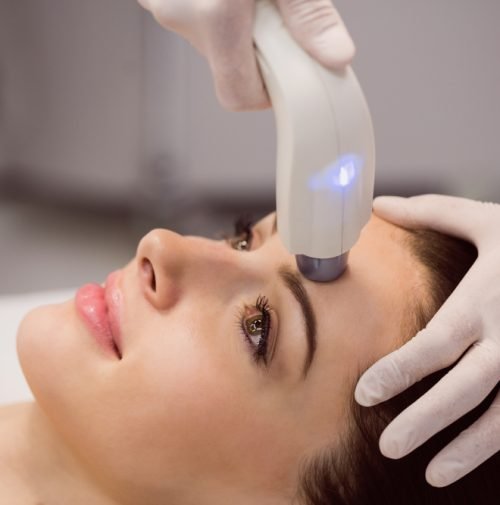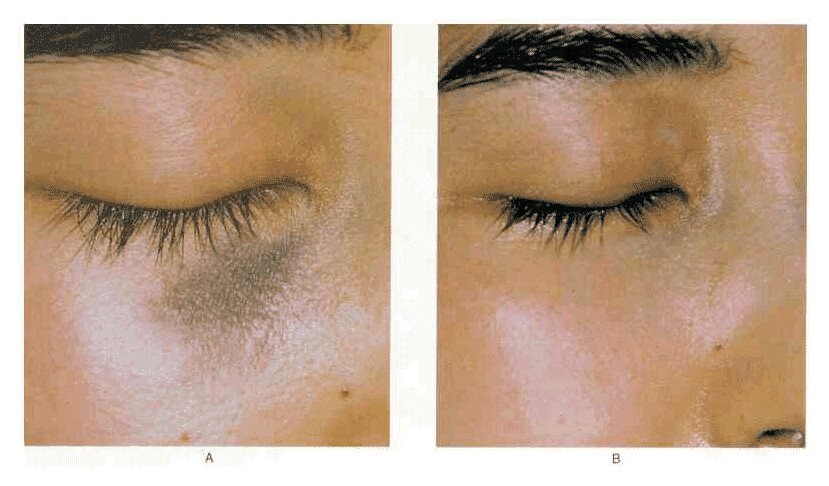Advanced Laser Therapy for Rare Pigmentary Conditions
Seeking trusted care for Nevus of Ota in Jamshedpur? At Dr. Kumar Skin & Laser Clinic, we offer specialized laser treatment that safely reduces this rare, deep-seated pigmentation for clear, even-toned skin.
What Is Nevus of Ota?
Nevus of Ota is a bluish, grayish, or brown patch caused by excess pigment-producing cells (melanocytes) trapped deep in the dermis. It typically appears:
While medically harmless, its appearance can cause emotional distress and affect confidence, especially in social settings.
- On one side of the face – often around the cheeks, temples, forehead, nose, and eye area
- From birth or adolescence
- In some cases, may involve the sclera (eye white)
While medically harmless, its appearance can cause emotional distress and affect confidence, especially in social settings.
What Causes Nevus of Ota?
Though the exact cause is unclear, contributing factors include:
- Congenital disorder: Present from birth or early puberty
- Dermal melanocytosis: Pigment trapped deep in the skin
- Ethnic factors: More common in Asians and those with darker skin
- Hormonal changes: May become more prominent during puberty or pregnancy
- Family history: May have genetic links
How Nevus of Ota Appears
- Color: Bluish, slate-gray, or brown pigmentation
- Location: Unilateral face and eye area
- Scleral involvement: May extend to the whites of the eyes
- No physical symptoms: Typically painless but visually prominent
Nevus of Ota Treatment Options
Q-Switched Nd:YAG Laser
Q-Switched Nd:YAG Laser
- Breaks down deep dermal pigment
- Safe for Indian/dark skin types
- 6–10+ sessions needed
- Minimal downtime, low scarring risk
Combination Therapy
Combination Therapy
- Topical lightening agents
- Daily sun protection
- Hydrating skincare support
Eye Involvement Cases
Eye Involvement Cases
- Ophthalmologist referral for sclera pigmentation
- Coordinated care during laser sessions
Post-Treatment Care Tips
Apply sunscreen (SPF 30+): Daily, even when indoors
Avoid direct sun exposure: Especially between laser sessions
Don’t scratch or rub: Helps prevent post-inflammatory hyperpigmentation
Stick to gentle skincare: Only use products recommended by your dermatologist
Attend all follow-ups: Consistency is key to successful outcomes





